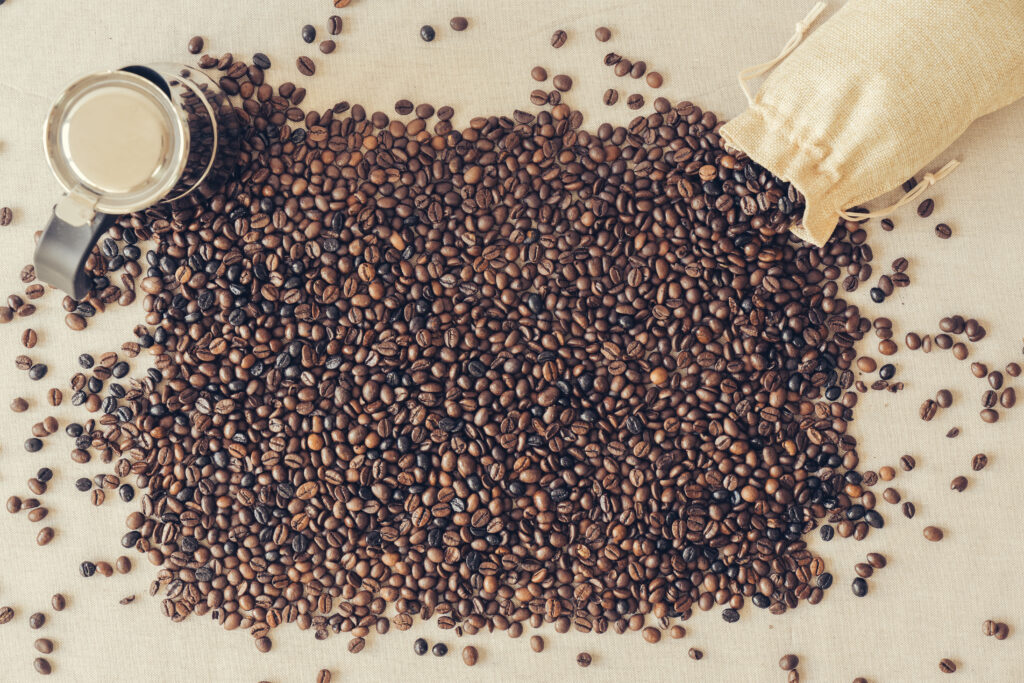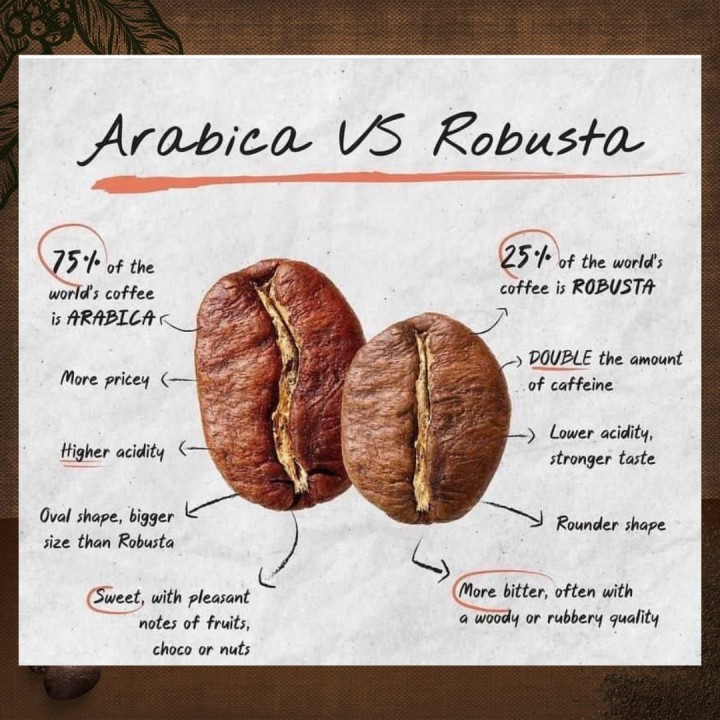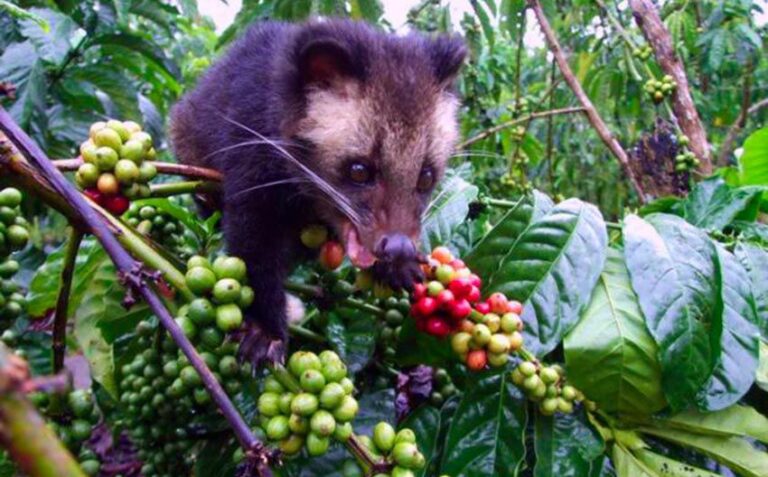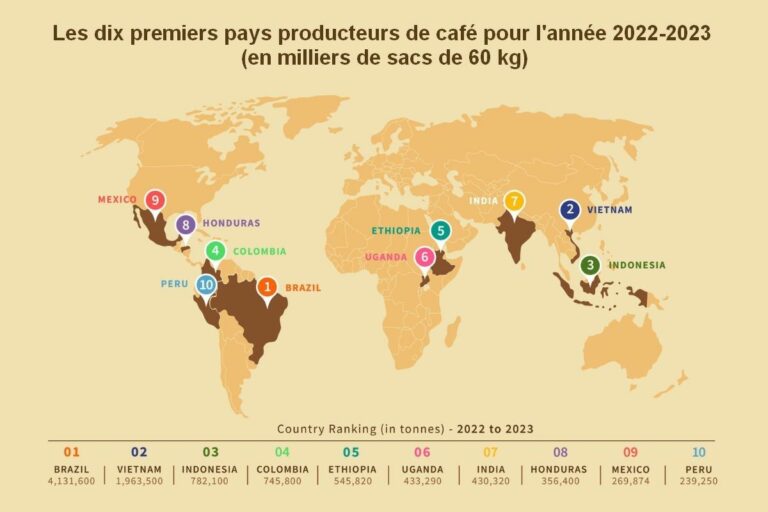
The term “coffee” comes from the Arabic “qahwah,” which means “stimulating drink.” Coffee is a stimulating psychotropic beverage made from roasted seeds of various coffee plant varieties and is one of the three most consumed beverages worldwide. Coffee cultivation is well-developed in many tropical countries across the Americas, Africa, and Asia, with coffee generally being intended for international export markets. Coffee plants are shrubs of the genus Coffea, with two main varieties cultivated: Coffea Arabica, which is mild, less robust, and has a refined aromatic quality, and Coffea Robusta, which is strong, bitter, with a powerful taste but less aromatic.
Each country has its own best coffee. The selection of the best beans is based on several criteria: the aromatic profile of the dry and brewed coffee, the coffee’s acidity, mouthfeel, flavor, absence of residues in the cup, and aftertaste.
This article explores the global leaders in coffee production based on data available for the year 2022-2023.

1 - Brazil
As the world’s leading producer, Brazil is a caffeine giant with a 35% share of the global market and a production of approximately 4.1 million tons.
In 2024, it continues to dominate production with a significant market share. The country is known for its Arabica and Robusta coffees, with plantations primarily located in the states of Minas Gerais, São Paulo, and Espírito Santo. Thanks to its expansive high-altitude areas and generous climate, Brazil stands out, particularly with Bahia coffee. This 100% Arabica coffee is highly regarded for its lightness and its long aromatic profile on the palate.
As the top producer, Brazil exerts considerable influence on global coffee prices. Fluctuations in its production can have a significant impact on the global coffee market and on the economies of coffee-producing countries that depend on coffee exports.
2 - Vietnam
In recent decades, Vietnam has risen to become the second-largest coffee producer in the world, thanks to its production of Robusta coffee. It holds 17% of the global market with a production of approximately 1.9 million tons.
Production is concentrated in the Central Highlands, such as Dak Lak and Lam Dong. Vietnamese Robusta is highly valued in Italy, particularly for making espressos.
3 - Indonésia

Indonesia holds 9% of the global market with a production of 782,100 tons. It is in this country of 17,000 islands that one of the rarest coffees in the world is produced: Kopi Luwak, a coffee harvested from the feces of an Asian civet, the luwak.
The civet consumes the coffee cherries, digesting their pulp but not their seeds, which end up in its feces. In the luwak’s digestive tract, the gastric juices composed of enzymes beneficially transform the coffee beans’ aromas.
Indonesian coffee is primarily produced in Sumatra, Java, Bali, and Sulawesi. Kopi Luwak is one of the most expensive coffees in the world.
4 - Colombia
The fourth largest coffee producer in the world, Colombia holds a 6% share of the global market with a production of approximately 745,800 tons. The country exports many varieties of Arabica, including the remarkable Aguadas coffee. Grown at high altitudes, amidst mist and banana plantations, it offers delightfully fruity flavors. The main production regions are Antioquia, Quindio, Caldas, and Risaralda.
5 - Ethiopia
Ethiopia is often considered the birthplace of coffee, and coffee production there is not only a cornerstone of the economy but also an integral part of local culture and traditions. With a 5% share of the global market and a production of approximately 545,820 tons, Ethiopian coffee is renowned for its diverse flavors and unique aromatic profiles. The country is home to the original *Coffea Arabica* shrubs, also known as Arabica coffee plants.
Once exported from the Port of Mocha to Yemen, Ethiopia is now globally recognized for its Moka coffees, known for their intense flavor and bright acidity. It is primarily grown in the regions of Sidamo, Yirgacheffe, Harar, and Jimma.
6 - Uganda
Uganda is a major producer of Robusta coffee, with a growing production of Arabica in the mountainous regions. The country holds 4% of the global market with a production of approximately 433,290 tons, ranking among the top producers in Africa and benefiting from favorable conditions for coffee cultivation. Coffee is primarily grown in the regions of Gulu, Masaka, Kabale, and Kabarole.
7 - India
India is a significant player in the global coffee scene, with its production marked by several unique characteristics that influence the quality and profile of the beans. The country holds a 3% share of the global market with a production of approximately 430,320 tons.
India primarily produces two types of coffee: Indian Arabica, which is often valued for its smoothness, fruity notes, and moderate acidity, and Indian Robusta, known for its high caffeine content, full body, and earthier flavors. Coffee is mainly grown in the regions of Karnataka, Kerala, and Tamil Nadu.
8 - Honduras
Honduras is a major producer of Arabica coffee, holding a 3% share of the global market with a production of approximately 356,400 tons. The plantations are located in the mountainous regions of the country, such as Lempira, Intibucá, and La Paz. Honduran coffee is valued for its complex flavors and increasing quality.
9 - Mexico
Mexico is a significant producer of Arabica coffee, with plantations primarily located in the regions of Veracruz, Chiapas, and Puebla. It holds a 2% share of the global market with a production of approximately 269,874 tons. Mexican coffee is often used in blends and is valued for its balanced flavors.
10 - Peru
Peru is a producer of Arabica coffee, holding a 2% share of the global market with a production of approximately 239,250 tons. The crops are located in the regions of Cajamarca, Junín, and Puno. The country is known for its organic coffees and sustainable cultivation practices.

Much more than a mere seed, coffee is a vital element in the daily lives of many people around the world, as it is difficult for them to start a morning without a cup. Each country offers unique flavors and qualities. Brazil and Vietnam are the largest producers, with Brazil leading in Arabica coffee and Vietnam in Robusta. Countries like Colombia, Honduras, and Peru contribute diversity with their high-quality Arabica coffees. Ethiopia, the birthplace of coffee, stands out with its unique flavors. Together, these countries form a diverse network that enriches the global coffee supply, offering enthusiasts a wide range of tastes and aromas.
Feel free to browse our blog to discover more articles about the global leaders in coffee.
Sources :
Ma cafeine







